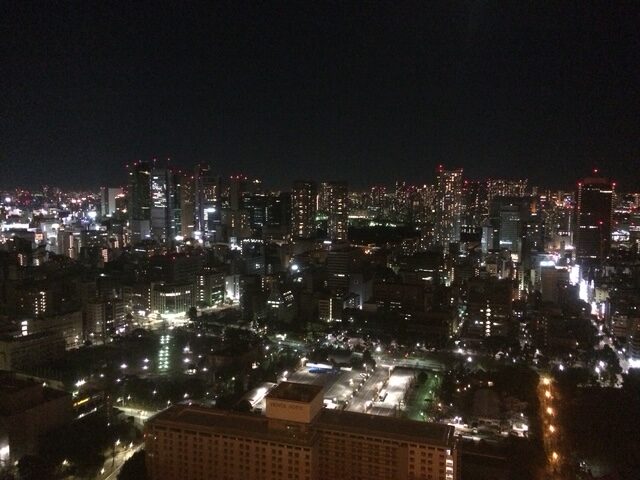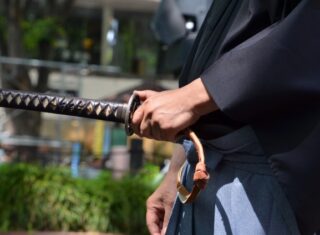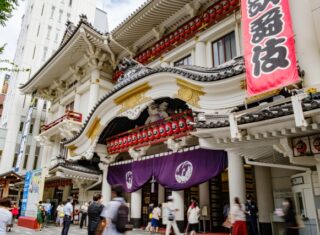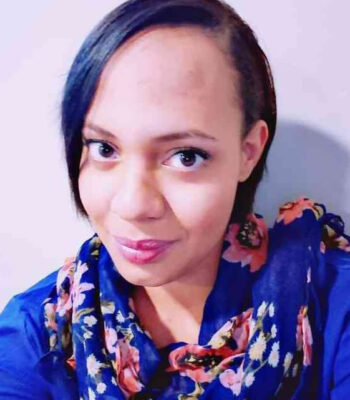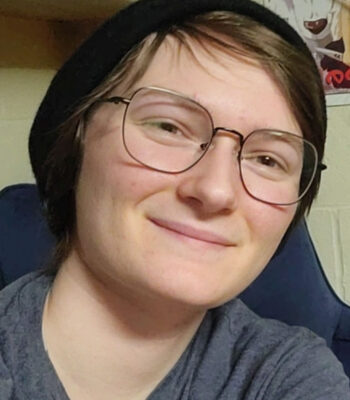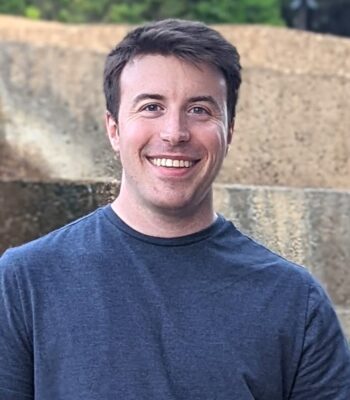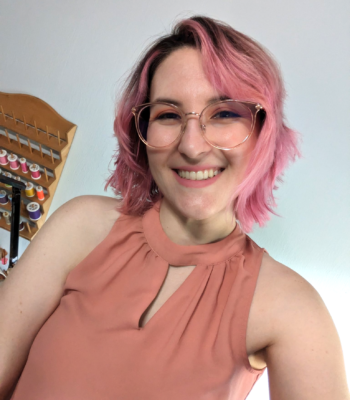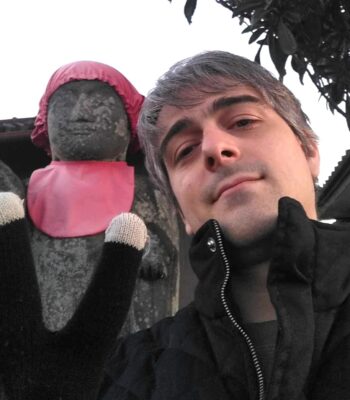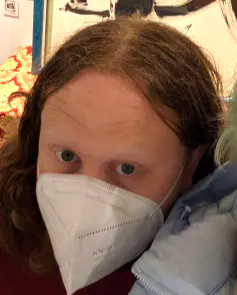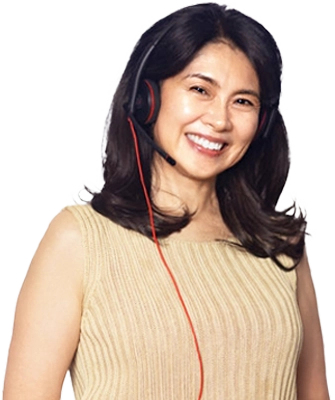- Learning Japanese
- Japanese Culture
From Zero to Fluent in Japanese: The True Story of How I Mastered Japanese and Changed My Life - Part 3: Belief, Bonds, and Breakthroughs
2025.10.11
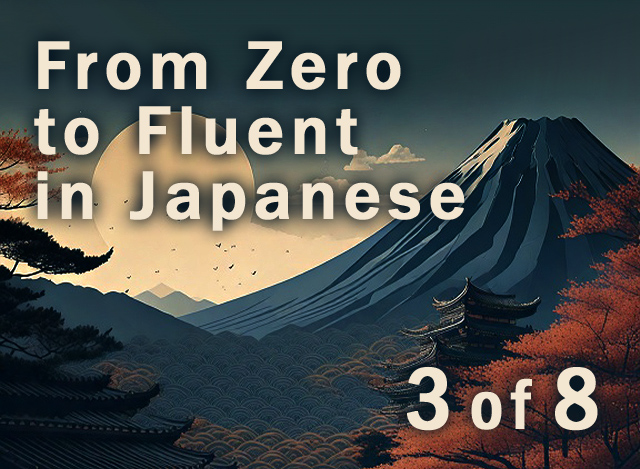
Chapter 11: A Bond’s Blossom
A few semesters later, I moved on to the next level of Japanese with a different professor.
But my connection with Oku Sensei didn’t fade.
If anything—it deepened.
At first, I’d stop by her office just to say hi, to ask a question, to share something small about class or life. But I started noticing something. I kept wanting to talk to her—not just about Japanese, but about everything. Something about her presence gave me happiness. clarity. Stability.
It was who she was.
Sweet-voiced. Gentle in tone and manner. Thoughtful. Kind. But beneath it all, strong and confident. She listened like every word mattered. Spoke like she genuinely believed in you. Encouraged you with the kind of sincerity that made you want to rise to meet it.
She made me feel truly fulfilled.
Like I could be more than I was.
Like I already was more than I knew.
Little by little, something shifted.
I began to see her differently.
Honestly, I was surprised at how well we got along. I took her out for the first time to an Indian restaurant, and we literally kept talking until the restaurant closed. And it wasn’t the forced type of conversation you typically have on most first dates; the conversation just naturally flowed. Even to this day, we are still like this; every day I come home from work, we talk and talk and talk for hours on end right up until we go to bed.
The Japanese have a word for this kind of bond—“縁” (en).
It’s the idea that certain people are meant to cross paths. That some connections aren’t random. They’re threads woven into your life from the very beginning.
And the more time I spent with her, the more I felt it.
This wasn’t admiration. It wasn’t infatuation, or some fleeting feeling.
It was something deeper. Calmer. Unshakable.
Over time, our bond evolved.
She became the person I trusted most. The person I turned to in moments of joy, confusion, challenge, and doubt.
And eventually… she became my partner in life.
It didn’t happen all at once. It wasn’t loud or dramatic.
It just happened. Naturally. Like something that was always meant to be.
Meeting someone like her early in life changed everything.
Because once you recognize a key person—the kind who makes you stronger, more grounded, more you—everything else starts to align.
And if you don’t? If you surround yourself with the wrong people?
No matter how hard you try… things just don’t move in the right direction.
That’s what I learned by being with Oku Sensei—not just through her lessons, but through her presence.
Some people are more than just guides. More than just partners.
They’re soul companions.
And if you’re lucky enough to find one…
Hold on.
Chapter 12: Confidence from the Ground Up – Her Belief in me
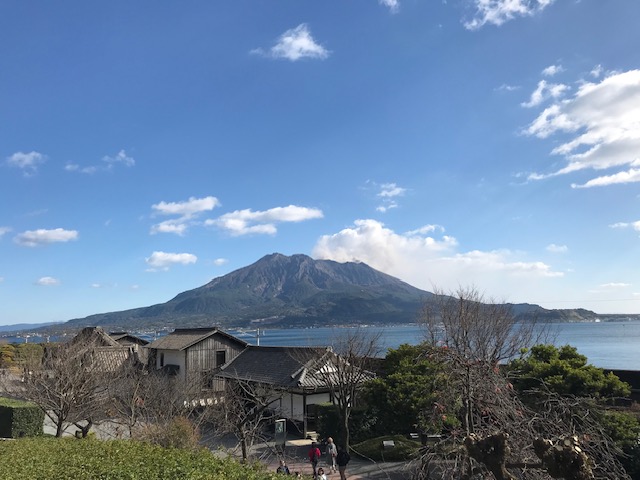
I kept pouring myself into my studies—textbooks, vocab lists, grammar drills, listening practice. Trying to balance my Japanese studies with my Engineering degree was starting to get tough; I was tired. Oftentimes burnt out. But never lost.
I’d fall asleep at my desk. Wake up with my face in my textbook. There were plenty of mornings I had to drag myself out of bed just to keep the momentum alive.
But still—I kept going.
Because I loved the process. Because every small improvement felt like a personal victory.
Yet, it wasn’t just my passion; something else was happening.
Her belief in me was changing me.
We talked about Japanese, about Japan, about life, about goals, frustrations, philosophies, dreams. And somehow, every conversation had this calming effect on me. She spoke to me not like someone trying to “fix” me, but like someone who saw through me. Completely. And still believed in what she saw.
She would point out things I had never even noticed about myself.
“You have a thoughtfulness and a gentleness to you, Julian” she’d say. “Your gentleness isn’t a weakness, it’s a strength; it gives you the ability to connect with others and put yourself in the other person’s shoes.”
“You’re so creative, Julian. Creativity is one of the traits I admire the most. True creativity is rare and beautiful.”
“You have such a kind way of seeing the world. If you keep honing your abundance of natural talent, I know you can do great things. You have great potential.”
“You’re made for Japan, Japanese people love you just the way you are.”
And I’d sit there stunned, because I had spent most of my life feeling like the opposite was true.
I’d always tried to be what others wanted—tried to fit the typical American mold. I had grown used to hiding parts of myself just to stay safe, fit in. I didn’t even realize how deep it ran, until she gently started helping me come out of it.
She didn’t lecture. She didn’t give advice unless I asked.
She just saw me.
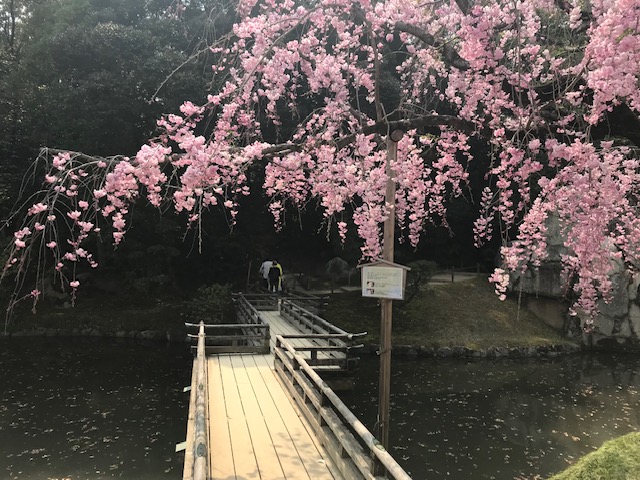
And one day, during one of our conversations, she said something so simple, it stopped me cold.
“It’s okay to be you, Julian.”
It wasn’t said with fanfare or drama. Just quiet conviction.
And for some reason, I felt like a wall inside me cracked open.
That one sentence hit something I didn’t know was still raw.
Because the truth was, no one had ever really told me that before.
Not like that. Not with love. Not with clarity. Not without conditions.
And for the first time, I started wondering—what if it was okay?
What if I didn’t have to constantly adjust myself to be accepted?
What if I could stop performing?
That one moment, that one message, stayed with me. It became something I carried with me everywhere—into my studies, into my work, into the way I started to see myself.
I wasn’t just growing in terms of my Japanese.
I was starting to grow into myself.
From someone who constantly second-guessed himself, who tried to survive by being like everyone else, I started becoming someone unique, grounded, focused, present. Someone with conviction. Someone with emotional truth.
Not all at once. But steadily.
That’s what belief does.
When someone sees the best in you—clearly, consistently, sincerely—you start to believe in it too.
And when that belief is paired with effort, with persistence, with love—something incredible happens.
Confidence starts to bloom.
Real confidence.
The kind that doesn’t shout or show off—but stands quietly and firmly in its own truth.
That’s what she gave me.
And that’s what I started to give myself.
Chapter 13: A Tutor by Circumstance, A Teacher by Discovery
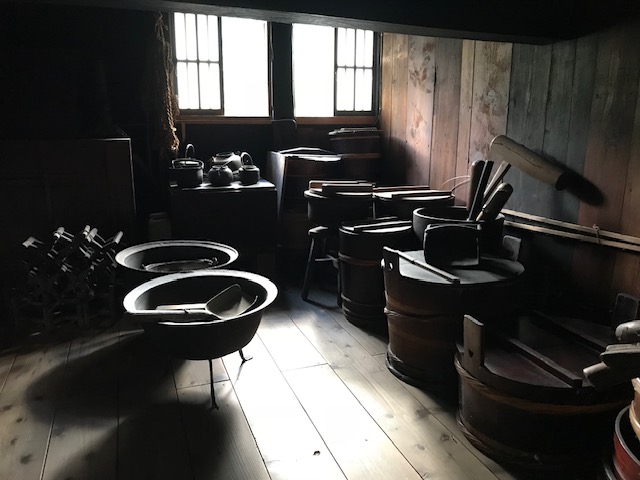
I didn’t go looking for it.
One day, my professor asked me if I’d be interested in tutoring some of the beginner Japanese students in the department.
I said yes.
Not because I had any big plan—just because I thought it might be helpful, and, well… I needed the money.
At first, it felt purely practical.
But soon, something shifted.
The students I worked with were all just starting out—learning their first hiragana, katakana, basic kanji, essential grammar patterns. They were trying to wrap their heads around the foundations: what particles meant, how to form a simple sentence, how to read a menu or introduce themselves.
For most of them, it was their very first time encountering the language. And I could feel how overwhelming it was for them.
It reminded me of how I felt when I started.
I found myself explaining things simply, kindly—breaking it all down the way I wish someone had done for me when I was just starting out.
No pressure. No judgment. Just support. Just clarity. Just warmth.
And the more I did it, the more I started to enjoy it.
Not just the act of explaining—but the effect it had.
That flicker of relief when something finally made sense.
That small smile when they realized they could read their first few kana.
That little boost of confidence when they got a sentence right.
It felt good.
Helping people feel good… felt good.
Helping them believe they weren’t stupid, that they could learn this… felt meaningful.
And somewhere along the way, I started to realize something:
I wasn’t just explaining hiragana or grammar rules.
I was encouraging people.
Lifting them up.
Giving them something to hold onto when they were just starting out.
That did something to me.
I began to understand: this journey I was on—maybe it wasn’t just mine.
Maybe it could become something more.
Maybe one day, I could build something for others too—something that supported them, encouraged them, helped them push forward.
Not because I had all the answers.
But because I understood the road.
Because I had walked it too.
And I cared.
That’s how it starts, I think.
Not with some big, flashy vision.
But with small, quiet moments of service.
Moments where you simply follow your heart… and help.
That’s where the seed gets planted.
And if you keep watering it with love, effort, and honesty…
One day, it grows into something much, much bigger.
Chapter 14: First Time in Japan – Cracks in the Shell

Two years before I studied abroad, I took my first trip to Japan.
At that point, I’d already been studying the language for a while. I wasn’t a complete beginner anymore. I knew the kana. I’d picked up a decent amount of vocabulary. I could string together basic sentences. I felt ready—or at least, I thought I was.
That first trip was short—just a few weeks—but what I experienced changed everything. It was the first time Japanese stopped being just a subject in a textbook and started becoming something real. And in that reality… I got humbled fast.
I still remember it clearly: the hotel breakfast buffet.
They had the usual Japanese spread—grilled fish, rice, pickles, soup—but what caught my eye was the little cooking station where a chef was taking omelet orders.
I walked up to him, full of optimism, eager to try my Japanese in the real world.
In my best, most confident voice, I said:
“ Omuretsu wo shimasu ka? “「オムレツをしますか?」
The chef blinked, terribly confused. The Japanese couple next to me glanced over—inadvertently smirking at the bizarre and unnatural Japanese I had just spoken.
That was the moment.
I realized I had no idea how to ask for an omelet. Something that simple.
My sentence—“Do you do omelets?”—sounded strange, unnatural, and maybe even a little absurd in Japanese. What I should have said was something like
“ Omuretsu wa Arimasu ka? “「オムレツはありますか?」
or
“ Omuretsu wo tsukutte itadakemasu ka? “ 「オムレツを作っていただけますか?」
Simple. Natural. Functional. But I didn’t know that yet.
I was absolutely devastated and embarrassed. Their quiet smirks haunted me. I felt like a complete fool and any bit of confidence I had in my Japanese went out the window.
The truth hit me: I still had a long, long way to go.
It wasn’t that I hadn’t learned anything. I had.
But I’d barely scratched the surface.
And that’s when the truth hit me:
This was going to be way, way harder than I initially realized.
I had grossly underestimated the road ahead.
Sadly, this is the fork in the road where many people either give up—or take what seems like the easier path, only to find themselves lost and disillusioned later.
“ I don’t want to experience that again, that was so uncomfortable. “
“I guess I’m not cut out for languages, I need to find something else to do. “
“I’m still this inept? No way I’m ever going to be able to speak this language fluently. “
“Oh, I just need to be more immersed. I need to surround myself with more Japanese.”
“I must be studying the completely wrong way. I need to study less grammar and focus on conversation.”
“Look at all these people fluent on youtube, what tricks did they use to get so good? There must be some secret method or trick they used; I need to find it!”

You’re not inept. You’re not stupid. You don’t lack the talent. Being uncomfortable is a good thing, it means you’re growing.
You’re not going to learn the language magically through osmosis. Doing conversation practice without understanding the basics won’t get you anywhere. And no, unfortunately there is no secret trick or hack.
Doing what you love and being passionate is very important. And yes, learning in a way that is effective and efficient is also important. But you won’t get anywhere with just that.
At the end of the day, It’s about putting in the work.
Consistent, focused, uncomfortable, unglamorous effort—day after day, for years.
To me, that moment was absolutely crucial.
It taught me I needed to grind harder.
Up until that trip, I’d been proud of the effort I’d put in.
And to be fair—I had worked hard.
But I realized something important:
What I’d done wasn’t enough.
That realization didn’t feel good. It stung.
But it was honest.
And it was necessary.
Because everyone loves the spark—the passion, the inspiration, the dream.
But the grind?
The part where you sit with a textbook for hours, redo practice questions, fail practice exams, struggle with nuance, and repeat the same basic sentence structure over and over again until it’s second nature?
That’s the part no one wants to talk about.
But without it, the dream dies.
The dream is flashy. Everyone loves to talk about the dream.
The grind is absolutely not flashy.
But both are essential.
You need the spark. The “why.”
But you also need the work. The discipline. The day-after-day refusal to quit.
That trip to Japan was the hard slap in the face I needed.
It showed me the scale of the mountain I was trying to climb.
And that moment—the omelet, the awkwardness, the quiet sting of pride—
It cracked something in me that needed to break.
Because if you want to grow, really grow,
your ego has to crack before your soul can stretch.
I didn’t leave Japan feeling discouraged.
I left hungry.
Hungrier than ever.
And more determined than ever to climb the mountain for real.
★Also try reading:
What Excellent Japanese Speakers Know That Most Don’t: Top 8 Secrets
Chapter 15: The Pressure Cooker – Balancing Everything
My final year in the U.S. before study abroad was the hardest grind of my life up to that point—no contest.
I was maxed out on academic credits both semesters.
Engineering classes, Math minor classes, Japanese Classes, research projects, weekly lab reports, part time jobs, late-night problem sets.
From morning till night, weekdays and weekends, I was either in class, doing homework, working part-time, or trying to make deadlines.
But still—I couldn’t stop thinking about Japanese.
That sting of failure, that flush of embarrassment during my first trip to Japan—it had flipped a switch.
I needed to get better.
I wanted to close the gap between who I was and who I envisioned myself becoming.
So I used every spare minute of my life to study Japanese.
Break between classes? Japanese grammar study and drills.
Have two extra hours on Saturday? JLPT practice exam.
Ten-minute break? Vocab review.
Have some time after dinner? N3 listening practice.
Even when I was walking to class or taking a shower, I’d practice sentence construction in my head.
It wasn’t glamorous. It wasn’t “balanced.”
But I didn’t care. I wasn’t chasing balance. I was chasing progress.
And somewhere along the way, I stopped doing language exchanges and switched to paid conversation lessons.
It was about focus.
I needed a space where I could focus only on listening and speaking Japanese—where I didn’t have to take an extra hour and 40 minutes to help the other person’s English, or constantly bounce back and forth between the languages to accommodate a partner’s goals.
I could just think, speak, and fail in Japanese—freely.
It made a huge difference.
I’d push through engineering exams by day, and grind through JLPT mock tests by night.
My schedule was brutal. My body was constantly tired.
There were days I’d literally doze off in the middle of working on my chair, head back on the headrest for a five-minute nap, then jolt awake and keep going.
It wasn’t sustainable. But it was effective.
And when the time came, I sat for the JLPT N3…
…and passed.
Which—if I’m being honest—is absolutely thanks to Oku Sensei.
She helped guide me.
She pointed me toward what to focus on, how to study efficiently, explained what the exam was really testing, and gave me essential tips that made all the difference.
Without her… I know I wouldn’t have passed that first time.
After the dust settled, I felt proud—but not content.
That year had taught me something I’d never forget:
Grit alone isn’t enough.
You can’t just study harder.
You have to study better.
You have to evolve—refine your approach, learn from your mistakes, adapt your methods to fit your goals and your life.
Otherwise, your ambition will eat you alive.
We love the idea of “never give up.”
But if you keep climbing the wrong side of the mountain, you won’t make it to the top—you’ll just exhaust yourself.
Hard work matters.
But smart, structured, sustainable, and continuously evolving work?
That’s what gets you there.
★Also try reading:
Oku Sensei’s Guide to Japanese Grammar: The Essential Step-by-Step Roadmap for Japanese Learners


